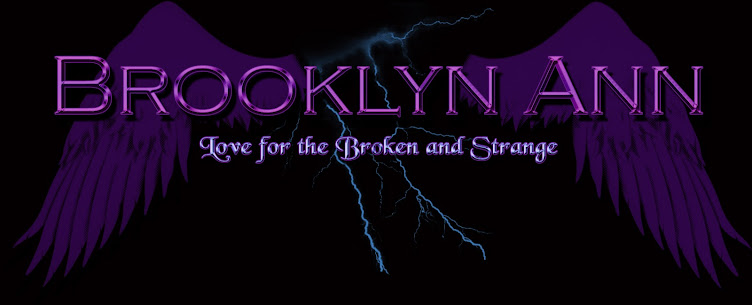
I made a TON of mistakes while querying my first novel. I have since learned from them and the results of my submissions for my current novel have much improved. I figured I'd share what I learned. Get your paper n'pen & hold on. You'll need em even more after reading this.
An important thing I learned is that the internet is almost a must if you are an aspiring author. And not just because many agencies now only take e-queries)
Oh, and if your manuscript is not complete and polished to its very best, QUIT READING NOW AND GET BACK TO WORK!
First off, perfect your query letter. If you think it is perfect, you are probably wrong. There are multiple sites and blog posts on how to write a proper query letter. There are some that show examples of good and bad ones including comments about what an agent loved or hated about a query. QueryShark is a great one! You can find a lot of info when you just google "query."
Find people to critique your query: The best site I've found for this is Querytracker.net. You have to join to be able to post your query on their forum for people to critique, but joining is well worth it, for there are multitudes of other great resources on that site, which I will mention soon.
While working on that, it is time to research agents. QueryTracker and other such sites have vast online databases in which you can look up agencies based on genre. But DON'T stop there. It is a big waste of time for you and the agent to just willy-nilly pick agents off these lists and go straight to the email address listed to send a query. These databases almost always include a link to the agent's website. That's because you're supposed to check that first!
Take some time to study the agent's website: Don't just skim through the submission guidelines and then jump into "compose mail" in your email program. Agent websites are filled with priceless gems, including more specific info about what they are looking for, links to their blogs and recent interviews, and articles about perfecting your submission.
Research a prospective agent's clients: Besides the fact that it is important to know if an agent HAS published clients, it is very useful to know how close the books they rep will fit in with yours. When an agent says they rep Romance, that doesn't tell you enough. For example: An agent expressed interest in my previous novel, which would fit in with novels like Sherrilyn Kenyon or JR Ward. I'm not querying her with this one because it is more along the lines of Judith McNaught-meets-Virginia Henley-meets-Maggie Shayne. I couldn't find who reps those lovely ladies, but I found some McNaught fans =)
Enter contests! Contests are not only a great credential if you win, but they are also a great opportunity to receive agent feedback. Many blogs, such as QueryTracker and Miss Snark's First Victim have them regularly.
I entered Miss Snark's First Victim Secret Agent contest last year with my previous project. Not only did I get great feedback from the agent, but when she was revealed, I discovered that she sounded like an excellent fit for my current novel. Needless to say, after further research she was bumped to the top of my query list.
And last week QueryTracker hosted a contest for romance, and that very agent was the judge! And.......I WON THIRD PLACE!!!!
Follow agent blogs and follow them on twitter: You really get to know agents as people as well as get priceless information on their response times, their pet peeves (Many hate the .docx format because it's a pain in the ass for them to convert) and valuable tidbits on the publishing industry. Many agents get together often on twitter to host an "#AskAgent" session. You can ask them anything but questions about queries. Follow that hashtag!
But remember, for the love of god, DON'T PITCH YOUR NOVEL TO THEM ON THESE SITES! They hate that, and for good reason. Agents tweet and blog in their rare personal time and get their chance to be people. They don't want it ruined by some schmuck who can't follow the rules.
Be professional, courteous, and patient in your query as well as everywhere else online. Agents receive 100's of submissions a day. They also have to work with their existing manuscripts, pitch to editors, and attend conventions and conferences. And they also have families and personal lives, which I have no idea how they pull that off. Don't bug them EVER about the status of your query and only nudge on partials and fulls if you have waited long past the agent's stated response time.
As for your online presence i.e. facebook, twitter, blogs, etc. Remember: AGENTS DO THEIR HOMEWORK TOO. If they google you and see that you are posting rants bitching about rejections or waiting time, they will likely hesitate to work with you. And if you tweet "Dude, I was so WASTED last night!" EVERY day, well, a few might frown on that too. Still, don't be too scared to be yourself. Agents do want to know who you are. And if they dislike you for your political leanings, spiritual beliefs, or sexual orientation, then they likely wouldn't be a good fit anyway. Still, it would be best to keep your bedroom habits and other too-personal details to yourself.
Handle rejection gracefully: First off, don't publicly rant about them and DON'T SEND ANGRY HATE MAIL! This will not do you any favors and will damage your chances at a writing career. I still can't believe how many agents still get regular nasty letters. This is why they don't give personal rejections most of the time.
Rejections are not only depressing, but they can also be infuriatingly mysterious. One of the main reasons for rejection is when the author did not follow submission guidelines. Typos are another one (holy crap, so I revised my query with a kick-ass closing sentence- and then sent it off with 2 mistakes *headdesk* I still garnered a request, but the agent said I almost blew it and I should have known better)
If you rack up a lot of rejections with very few requests, it is likely a sign that you need to revise your query and/or your manuscript. And be sure to double check your revisions as I learned earlier.
A scary theory on some rejections: I don't know about you, but I have book cravings. Sometimes I want something dark and deep. Sometimes I want light and cheerful, other times I want a kick-ass heroine and blood n'gore. Maybe agents also have cravings and your submission didn't fit that day's craving. Of course, maybe some cosmic force helps with that to ensure you get the right one =) I can dream, you can't stop me.
Anyway, there is a lot more info on agents and valuable resources at your fingertips, so go out, do your homework and do your damn best to be sure that your submission is in the cream of the slush pile. Good luck to you all!















